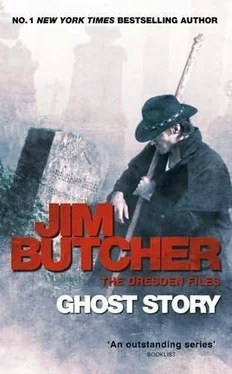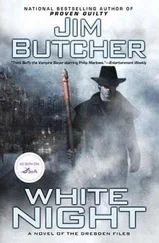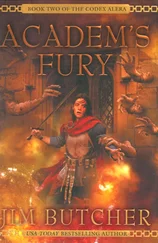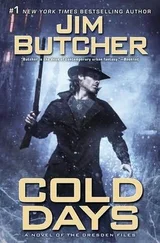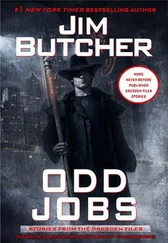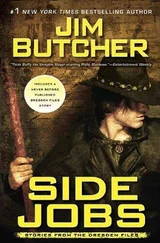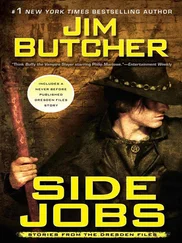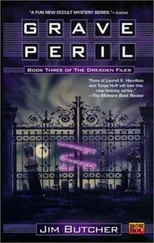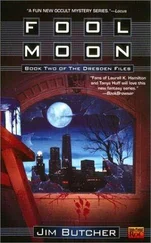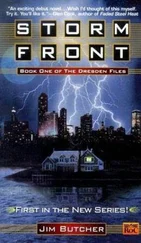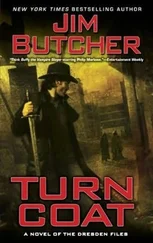I noticed something, too, when we had been talking about the shot that had killed me and the shooter’s location, and gathering more information about potential assassins. Murphy hadn’t said much—but she’d not said a whole hell of a lot more.
She had never, not once, mentioned Kincaid.
Kincaid was a partially inhuman mercenary who worked for the scariest little girl on God’s green earth. He was centuries old and he was a phenomenon in a fight. He had somehow overcome the negative aspects of the human nervous system, at least as it applied to firing a weapon under pressure. I’d never seen him miss. Not once.
And it was he who had told me that if he wanted to kill me, he’d do it from at least half a mile away, with a heavy-duty rifle round.
Murphy knew as well as I did that the opinion of an assassin with centuries of experience would be invaluable in the investigation. Initially, I hadn’t suggested it, because Murph had kinda been dating the guy for a while, and seemed to care for him. So it seemed more appropriate to let her bring it up.
But she hadn’t.
She’d never mentioned him at all.
She’d run the meeting too rapidly, and was ready to fight with me over something, anything. The entire argument about Fitz and his crew had been a smoke screen.
The only question was for whose benefit it had been. Mine, so that a possibly crazy ghost wouldn’t go storming off for vengeance of some kind? Or had it been a veil of fog for her own benefit, because she couldn’t reconcile her view of Kincaid with that of the faceless person who had killed me?
That felt right. That she knew it in her heart and, without realizing it, was frantically scrambling to find a less painful truth with her head.
My reasoning was based on my knowledge of human nature and of Murphy’s personality, and on my intuition—but I’d spent a lifetime trusting my instincts.
I thought they were probably right.
I played through the possibilities in my head. I imagined Murphy, distraught and falling to pieces on the inside, in the days after my murder. We never got to find out if we’d be anything together. We’d missed it by moments. I knew that when there had been enough time for her rage to abate, the sorrow would begin to pile up. I imagined her in the next month or so, no longer a cop, her world in shambles.
Word of my death would have gotten around fast—not only among the wizards of the White Council, but among the remaining vampire Court, over the Paranet, and from there to the rest of the supernatural world.
Kincaid probably heard about it within a day or two. As soon as someone filed a report about me, the Archive, the supernatural recorder of all written knowledge that dwelled within a child named Ivy, would have known. And I was probably one of the only people in the world she thought of as a friend. She was what? Twelve? Thirteen?
News of my death would shatter Ivy.
Kincaid would, I think, have gone to Murphy to offer what comfort he could. Not the hot-chocolate-and-fluffy-robe brand of comfort. He was more likely to bring bottles of whiskey and a sex-music CD.
Especially if he was already right here in town, a dark, nasty part of me whispered in my head.
I imagined Murphy taking shelter where she could and bidding him farewell when he left—and then, over the next few weeks, slowly lining up facts and reaching conclusions, all the while repeating to herself that she was probably wrong. That it couldn’t be what it looked like.
Frustration. Pain. Denial. Yeah, that would be enough to draw rage out of anybody. Rage she would be carrying with her like a slowly growing tumor, becoming more and more of a burden. It was the sort of thing that might push someone to kill another person, even when maybe it wasn’t necessary.
That death would cause more guilt, more frustration, which would cause more rage, which would cause more violence, which would add to guilt again; a literal vicious cycle.
Murphy didn’t want to get shots from airport and train-station security cameras because she didn’t want to find out that the man she’d been sleeping with had killed one of her friends. When drawn close to that plausibility, she reacted in anger, pushing away the source of illumination about to fall on what she didn’t want to see.
She probably wasn’t even aware of the clash of needs in her head. When you’re grief-stricken, all kinds of irrational stuff flies around in there.
Detective work isn’t always about logic—not when you’re dealing with people. People are likely to do the most ridiculously illogical things for the most incomprehensible of reasons. I had no logic to aim at Kincaid. But the theory fit a whole lot of pieces together. If it was correct, it explained a lot.
It was only a theory. But it was enough to make me want to start digging for more evidence where I might not otherwise have looked.
But how? How was I going to start digging into Jared Kincaid, the Hellhound, the closest thing to a father Ivy had ever had—and do it without Murphy’s help? For that matter, I’d have to find some way to do it without her knowledge, and that seemed like something that would be more than a little slimy to do to a friend. Augh . Better, maybe, to focus on the immediate problems first.
I had to find Morty, whose plight had clearly been low on Murph’s priority list.
I had to help Fitz and the rest of his clueless, teenage pals.
And for all of it, I needed the help of someone I could trust.
I took a deep breath and nodded.
Then I walked until I had passed through an exterior wall of the Bright Future house, and set off to find my apprentice before the night got any deeper.
Ialways considered myself a loner.
I mean, not like a poor-me, Byron-esque, I-should-have-broughta-swimming-buddy loner. I mean the sort of person who doesn’t feel too upset about the prospect of a weekend spent seeing no one, and reading good books on the couch. It wasn’t like I was a people hater or anything. I enjoyed activities and the company of friends. But they were a side dish. I always thought I would also be happy without them.
I walked the streets of a city of nearly three million people and, for the first time, there was nothing that connected me to any of them. I couldn’t speak to them. I couldn’t touch them. I couldn’t get in an argument over a parking space, or flip the bird to a careless driver who ran a light while I was crossing. I couldn’t buy anything in one of the stores, making polite chitchat with the clerk while paying. Couldn’t pick up a newspaper. Couldn’t recommend a good book to someone browsing the shelves.
Three million souls went about their lives around me, and I was alone.
Now I understood Captain Murphy’s shadow Chicago. The actual town had already begun to feel like the shadow version. With enough time, would the real city look that way to me, too? Dark? Empty? Devoid of purpose and vaguely threatening? I’d been here for barely a day.
What would I be like if I was here for a year? Ten years? A hundred years?
I was starting to get why so many ghosts seemed to be a couple of French fries short of a Happy Meal.
I had to wonder, too, if maybe Sir Stuart and Morty were right about me. What if I really was the deluded spirit they thought I was? Not the true Harry Dresden, just his image in death, doing what the lunatic had always done: setting out to help his friends and get the bad guy.
I didn’t feel like a deluded spirit, but then, I wouldn’t. Would I? The mad rarely know that they are mad. It’s the rest of the world, I think, that seems insane to them. God knew it had always seemed fairly insane to me. Was there any way I could be sure I was anything other than what Sir Stuart and Mort thought?
Читать дальше
